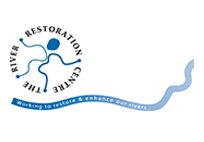Call us free on 0808 168 9540
Call us free on 0808 168 9540

Phlorum provides phase 1 and phase 2 otter surveys for planning across southern England, including Sussex, London, Surrey, Kent, Dorset, Hampshire and Wiltshire.
Otters live on watercourses and are legally protected under the Conservation of Habitat and Species Regulations 2017, and under Schedule 5 of the Wildlife and Countryside Act (1981). It is illegal to kill, injure or capture an otter, destroy, damage, or obstruct an otter’s resting place, or intentionally or recklessly disturb an otter while it occupies its resting place.
Despite huge population declines in the last century, otters are now well established in most of the UK but still have low numbers in the South East of England. Otters can inhabit most types of water courses and can even use ditches for dispersal. They are also found in urban areas. Otters are mainly nocturnal, solitary animals that feed on fish.
Otters are hard to find and otter survey techniques must look for various signs, such as droppings, footprints, resting places and slides.
An exclusion zone around otter habitats, where there should be no activities that might disturb them, such as proposed development, depends on the type of habitat and the type of disturbance. For non-breeding resting places it is 30 meters. For breeding areas or suspected breeding areas it is 200m. In some cases, it might be possible to reduce the exclusion zone to 100 meters.
Otters can be found in most parts of the United Kingdom but are absent from parts of central and southern England, the Isle of Man, the Isles of Scilly, and the Channel Islands. They tend to live in and near rivers, canals, lakes, and coastlines if there’s a freshwater source nearby.
They can range over long distances along watercourses, often covering tens of kilometres. Otter Survey Season Although otter surveys can be undertaken at any time of year, they are better when the water level is low and the vegetation has died back. Wildlife cameras can also assist with surveys.
Phlorum can conduct otter surveys and advise on developments that may impact otters. We can also devise appropriate mitigation strategies where required.
Contact our team of ecology consultants to find out more about our otter surveys and for your free otter consultation.








